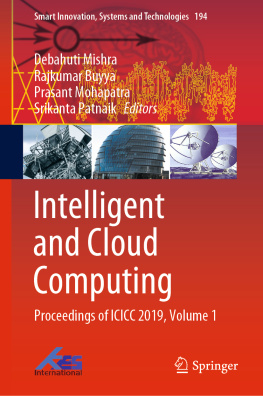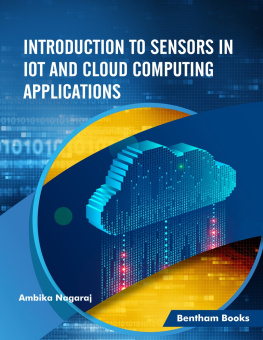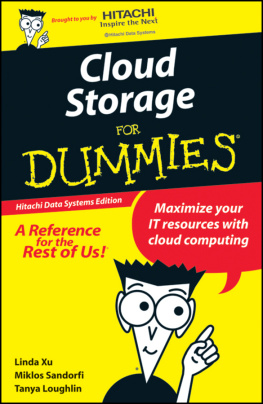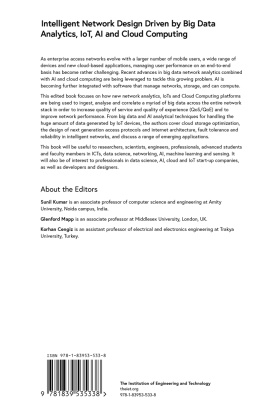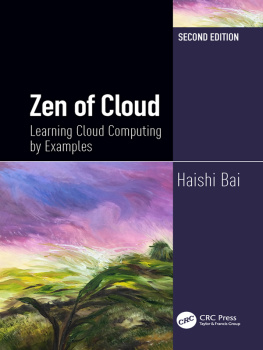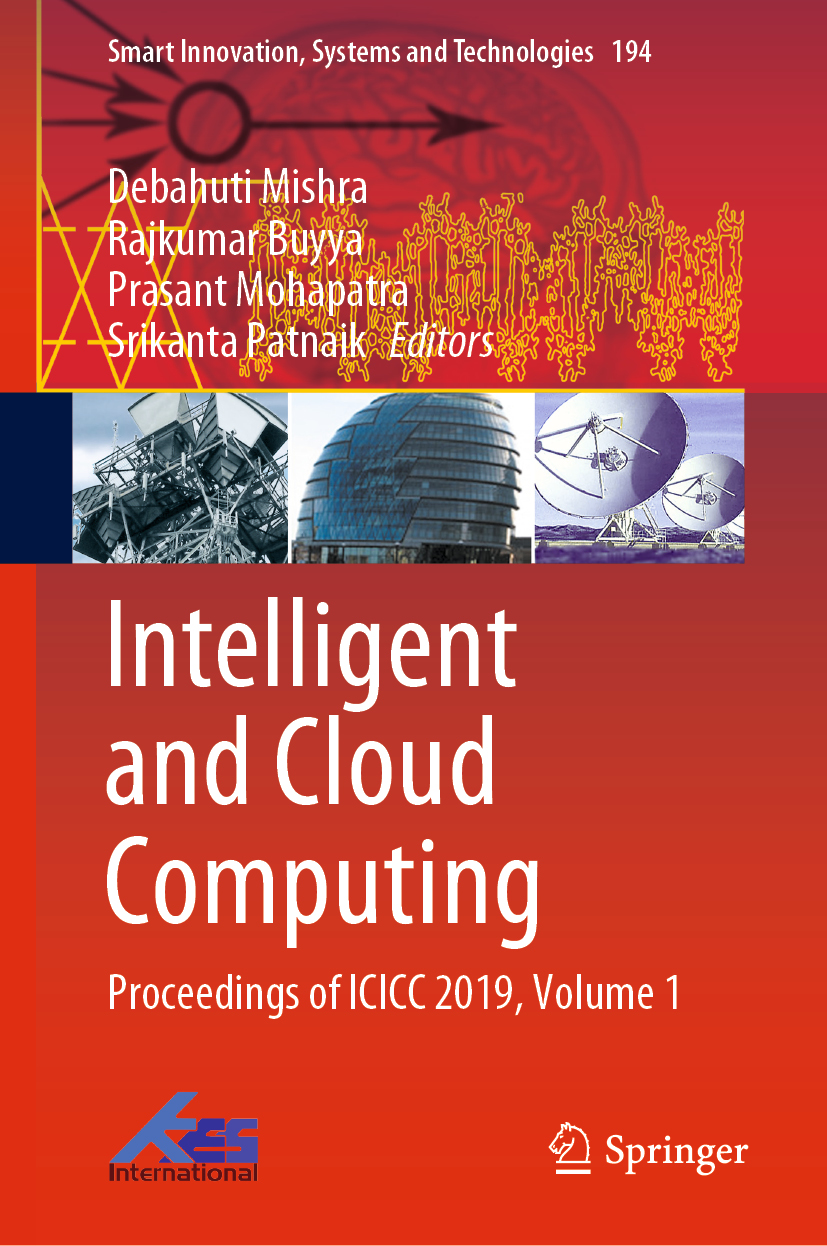Volume 194
Smart Innovation, Systems and Technologies
Series Editors
Robert J. Howlett
Bournemouth University and KES International, Shoreham-by-sea, UK
Lakhmi C. Jain
Faculty of Engineering and Information Technology, Centre for Artificial Intelligence, University of Technology Sydney, Sydney, NSW, Australia
The Smart Innovation, Systems and Technologies book series encompasses the topics of knowledge, intelligence, innovation and sustainability. The aim of the series is to make available a platform for the publication of books on all aspects of single and multi-disciplinary research on these themes in order to make the latest results available in a readily-accessible form. Volumes on interdisciplinary research combining two or more of these areas is particularly sought.
The series covers systems and paradigms that employ knowledge and intelligence in a broad sense. Its scope is systems having embedded knowledge and intelligence, which may be applied to the solution of world problems in industry, the environment and the community. It also focusses on the knowledge-transfer methodologies and innovation strategies employed to make this happen effectively. The combination of intelligent systems tools and a broad range of applications introduces a need for a synergy of disciplines from science, technology, business and the humanities. The series will include conference proceedings, edited collections, monographs, handbooks, reference books, and other relevant types of book in areas of science and technology where smart systems and technologies can offer innovative solutions.
High quality content is an essential feature for all book proposals accepted for the series. It is expected that editors of all accepted volumes will ensure that contributions are subjected to an appropriate level of reviewing process and adhere to KES quality principles.
** Indexing: The books of this series are submitted to ISI Proceedings, EI-Compendex, SCOPUS, Google Scholar and Springerlink **Indexed by SCOPUS, EI Compendex, INSPEC, WTI Frankfurt eG, zbMATH, Japanese Science and Technology Agency (JST), SCImago, DBLP.
More information about this series at http://www.springer.com/series/8767
Editors
Debahuti Mishra , Rajkumar Buyya , Prasant Mohapatra and Srikanta Patnaik
Intelligent and Cloud Computing
Proceedings of ICICC 2019, Volume 1
1st ed. 2021
Editors
Debahuti Mishra
Department of Computer Science and Engineering, Siksha O Anusandhan Deemed to be University, Bhubaneswar, Odisha, India
Rajkumar Buyya
University of Melbourne, Melbourne, VIC, Australia
Prasant Mohapatra
Department of Computer Science, University of California, Davis, CA, USA
Srikanta Patnaik
Department of Computer Science and Engineering, Siksha O Anusandhan Deemed to be University, Bhubaneswar, Odisha, India
ISSN 2190-3018 e-ISSN 2190-3026
Smart Innovation, Systems and Technologies
ISBN 978-981-15-5970-9 e-ISBN 978-981-15-5971-6
https://doi.org/10.1007/978-981-15-5971-6
Springer Nature Singapore Pte Ltd. 2021
This work is subject to copyright. All rights are reserved by the Publisher, whether the whole or part of the material is concerned, specifically the rights of translation, reprinting, reuse of illustrations, recitation, broadcasting, reproduction on microfilms or in any other physical way, and transmission or information storage and retrieval, electronic adaptation, computer software, or by similar or dissimilar methodology now known or hereafter developed.
The use of general descriptive names, registered names, trademarks, service marks, etc. in this publication does not imply, even in the absence of a specific statement, that such names are exempt from the relevant protective laws and regulations and therefore free for general use.
The publisher, the authors and the editors are safe to assume that the advice and information in this book are believed to be true and accurate at the date of publication. Neither the publisher nor the authors or the editors give a warranty, expressed or implied, with respect to the material contained herein or for any errors or omissions that may have been made. The publisher remains neutral with regard to jurisdictional claims in published maps and institutional affiliations.
This Springer imprint is published by the registered company Springer Nature Singapore Pte Ltd.
The registered company address is: 152 Beach Road, #21-01/04 Gateway East, Singapore 189721, Singapore
Preface
The 1st International Conference on Intelligent and Cloud Computing (ICICC-2019) was organized by the Department of Computer Science & Engineering, ITER, Siksha O Anusandhan (Deemed to be) University on 1617 December 2019. ICICC-2019 has provided a suitable platform for academicians, practitioners, researchers and experts to showcase their work and findings as well as exchange ideas and future directions while sharing their experiences with each other. ICICC-2019 has focused on recent research trends and advancements in cloud computing and its importance in diversified application fields. Intelligent and cloud computing integrated with other relevant techniques not only adds values to crucial decisions but also provides new direction to advancement in key technical areas such as adoption of Internet of things, distributed computing, cloud computing, blockchain, big data, etc. It provides significant insights that support managers in various sectors such as human resource developments, resource management, biological data processing, marketing strategies, supply chain management, logistics, business operations, financial markets, etc., thus making it a potential research area. The conference has received a good response with a large number of submissions. The total number of relevant papers accepted for publication has been broadly divided into five major parts: (i) intelligent and cloud computing, (ii) software engineering, (iii) wireless sensor network, (iv) IoT and its application, and (v) AI and machine learning.
First part, i.e. intelligent and cloud computing, attracted significant attention in both research and industry in the current era. Cloud computing enlarges the field of distributed computing by providing elastic services, large data storage and processing, applications, and high-performance computation in addition to the business cost reduction.
Second part, service-oriented software engineering, incorporates the best features of both the services and cloud computing paradigms, offering many advantages for software development and applications, but also exacerbating old concerns. Services and cloud computing have garnered much attention from both industry and academia because they enable the rapid development of large-scale distributed applications in areas such as collaborative research and development, e-business, healthcare, grid-enabled applications, enterprise computing infrastructures, military applications, and homeland security. These computing paradigms have made it easier and more economical to create everything from simple commercial software to complex mission-critical applications.
Third part deals with the integration of Wireless Sensor Networks (WSN), cloud computing and big data technologies which offer vast opportunities to solve many real-world problems. The combination of WSN and cloud computing environment-based application can collect and process large amount of data from the beginning until the end of the process loop.

